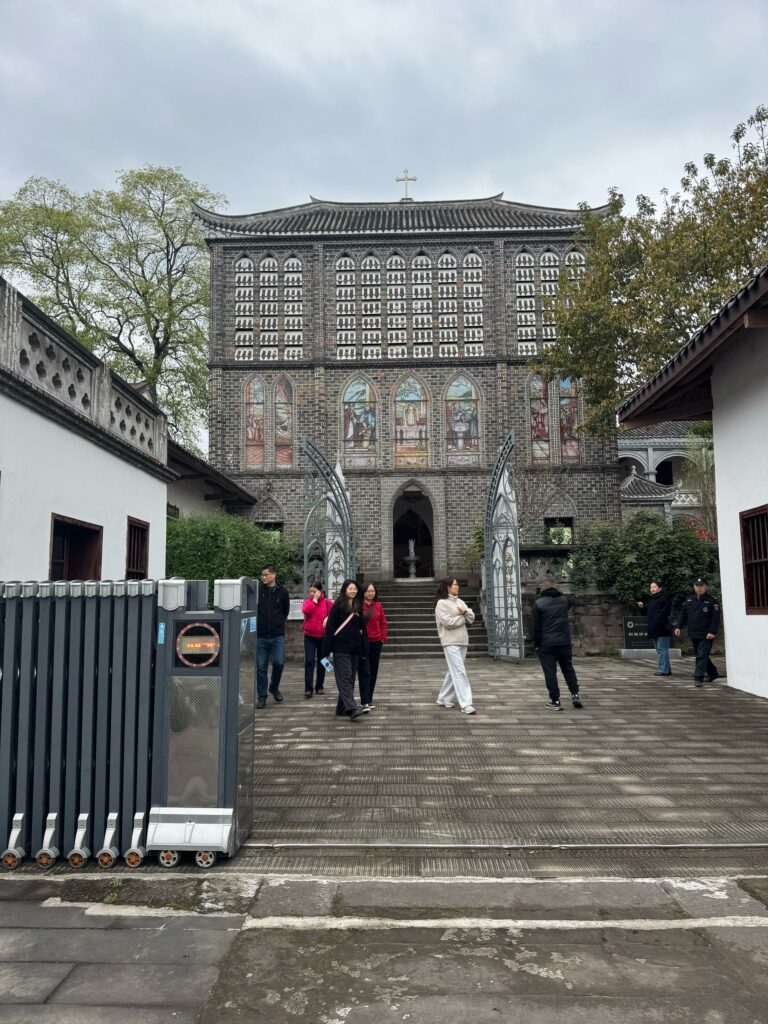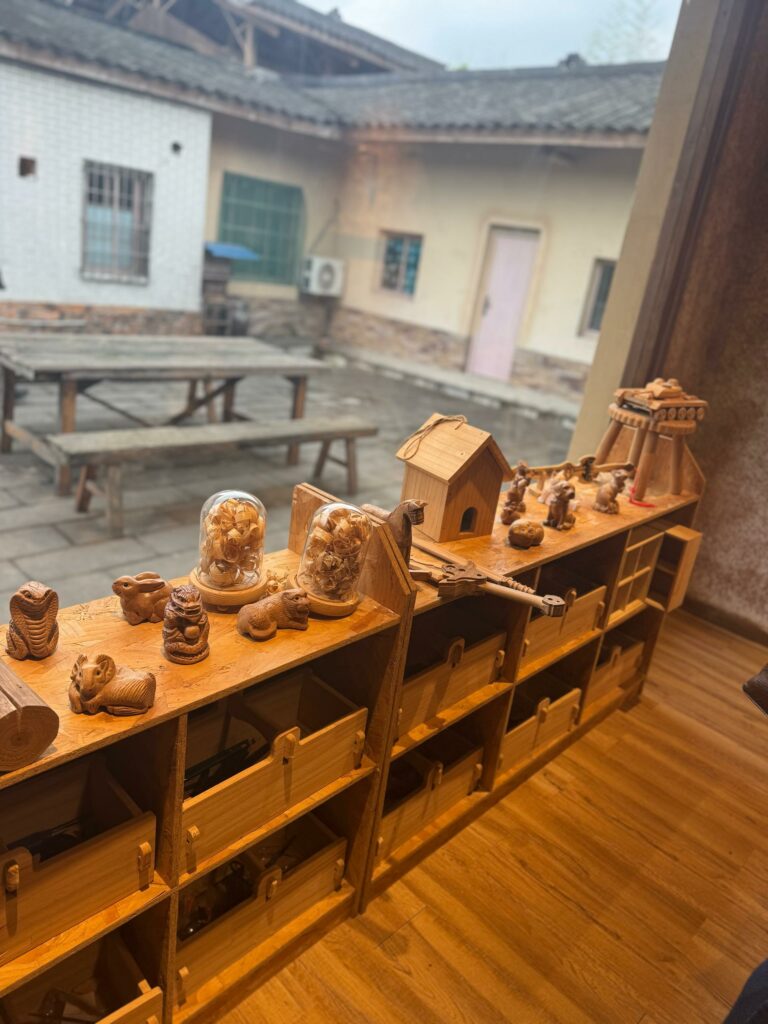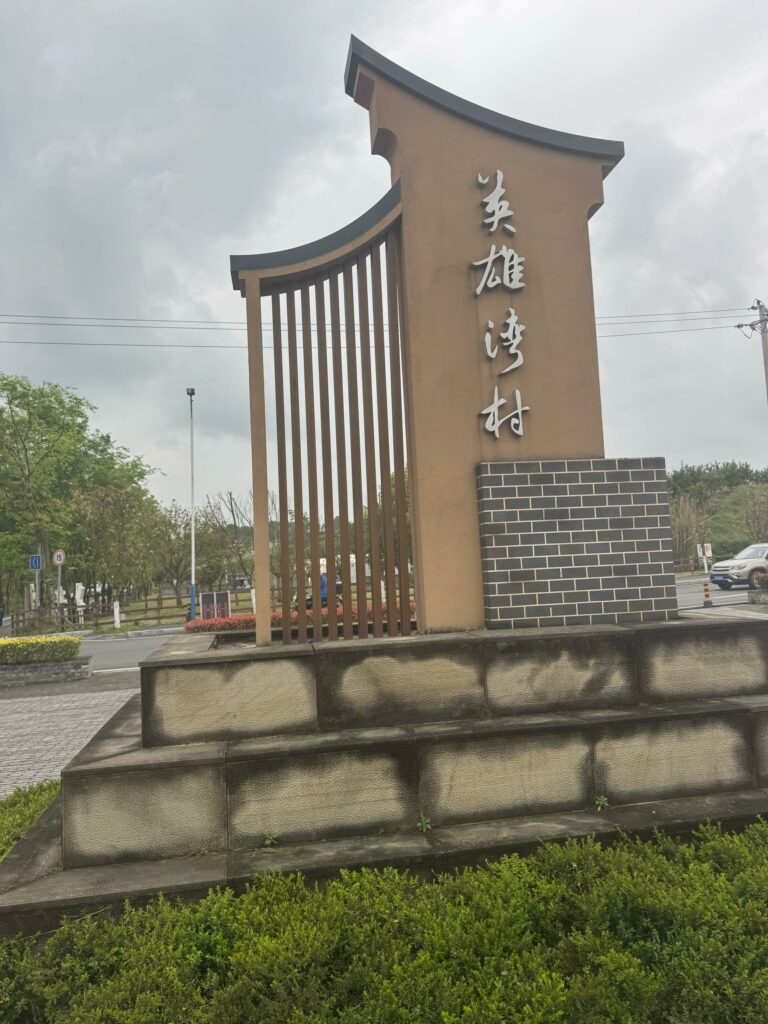Nestled just outside the bustling city centre of Chongqing lies the intriguing Hero Bay – an area that challenges traditional notions of village life in China.
Situated in Yingxiongwan village, within the Tongguanyi town of the Jiulongpo District, Hero Bay exemplifies a unique blend of rural charm and modern development.
In China, the term “village” often refers to a community with a certain level of development, bearing striking similarities to the GRA (Government Reserved Areas) found in Nigeria and other parts of Africa.
What distinguishes these so-called villages is not a lack of infrastructure – indeed, Hero Bay boasts of well-maintained roads, reliable power supplies, clean water and robust internet connectivity. Rather, it is the height of the tallest buildings that defines their status; most structures here do not exceed five storey-buildings. Residents are incentivised to live in these communities, creating a unique socio-economic landscape.
 Local governments construct these settlements not merely as quaint rural retreats but as strategic initiatives aimed at curbing the migration of residents to urban centres.
Local governments construct these settlements not merely as quaint rural retreats but as strategic initiatives aimed at curbing the migration of residents to urban centres.
During an exploration of China’s less-developed areas, Hero Bay emerged as a prime example of how the government encourages people to remain in rural locales by providing financial incentives and land allocations.
This strategy not only promotes agricultural activities but also bolsters technological advancements that contribute significantly to the local and national economy.
Wang Yongzhong, a researcher at the Chinese Academy of Social Sciences, highlights that these villages, while modest in physical stature, often surpass the standards of luxury communities found worldwide.
Connectivity is a priority in China; every region is linked by well-paved roads, and access to essential services is guaranteed.


The establishment of Hero Bay is a testament to the government’s commitment to preventing rural-urban migration, especially among the youth.
Though urban areas may feature towering skyscrapers and densely populated estates, the allocated living spaces in cities are often quite cramped.
In contrast, Hero Bay offers generous housing and land to those willing to stay put, thus fostering a dual economy where agriculture and manufacturing coexist.
Nearby, the General Motors factory operates alongside various other enterprises, providing young residents with both employment and opportunities for agricultural engagement, supported by local government initiatives and not from the centre. The government at the region or districts set minimum wages.


The amenities found in these communities challenge the conventional image of a village.
Hero Bay boasts of spacious surroundings, decent housing, schools, hospitals and even security services, with guard personnel visible in residential areas.
The deputy director of the Executive Department of China-Aid Training Programmes, Mr Wu Hao, noted that, “The government encourages them to stay in the villages rather than migrating to the towns.
“You have seen the real China – its culture, its people, its past and history.”
Mrs Yang Baozhen, a resident, echoes this sentiment, affirming that young individuals are motivated to participate in the local economy, thereby enhancing the village’s financial landscape.
However, Hero Bay operates under a unique economic model. Instead of a free market, it features a cooperative business environment where those not engaged in farming or factory work often run restaurants and small businesses.
Education is prioritised, with primary and secondary schooling provided free of charge, while government policies enable residents to own homes in both the village and the city.
Yet, land ownership is strictly regulated; individuals cannot buy or sell land but can lease it for 50 to 70 years, after which renewal is necessary.

A tour guide clarifies the intricacies of land use in China. “All land belongs to the government, which designates specific purposes for each plot. If a parcel is allocated for fruit cultivation or rice farming, it must be used accordingly,” he said.
The overarching goal of this model is clear: to ensure that all villages are equipped with essential amenities, thereby eliminating the need for rural inhabitants to migrate to cities in search of basic services.
As discussions surrounding Nigeria’s and indeed, Africa’s development continue, it becomes apparent that adopting similar policies could yield significant benefits. Collaborating with China’s Belt and Road Initiative (BRI) could provide vital partnerships for developing countries, and the Academy for International Business Officials (AIBO) under the Ministry of Commerce of the People’s Republic of China offers training in modern development strategies.
By curtailing rural-urban migration through the application of China’s model, communities across Africa could emerge stronger, ultimately enhancing their gross domestic products (GDP) and paving the way for a more prosperous future.





